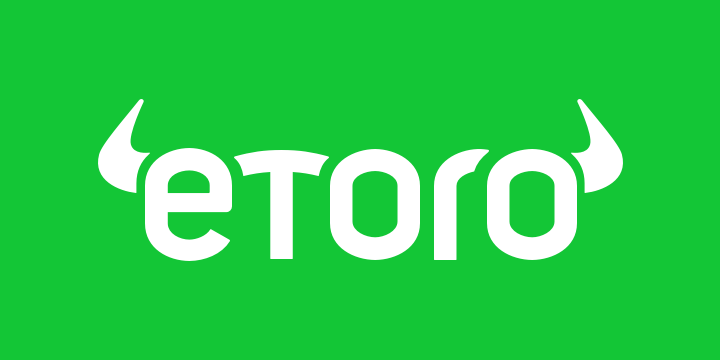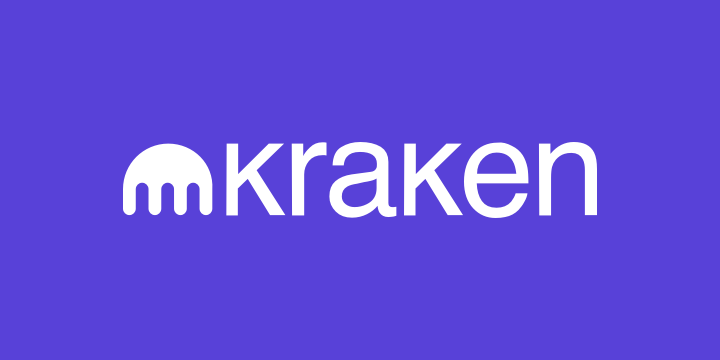11 Best Cryptocurrencies to invest in For 2024

Last year can be unhesitatingly termed as one of the most challenging years for the conventional financial system and the world economy overall, in a long time. We saw an increasing number of institutional investors drifting towards cryptocurrencies amidst a major global pandemic, frequent lockdowns and a looming global recession. The cryptocurrencies’ cumulative market cap has grown by a whopping 500% and it’s well-evident that they will attract further investment going forward.
This article will discuss some of the features of cryptocurrencies to help a user shortlist the best cryptocurrency to invest in 2024.
Where to Invest in the Top Cryptocurrencies - Our Top 3 Picks
Looking to invest in the best cryptocurrencies below? Here are our top 3 recommended crypto exchanges to use for buying and selling cryptocurrency.
Our List of the Top Cryptocurrencies to Invest In
A large number of innovative as well as imitative cryptocurrencies have emerged over the years. Below we’ve listed some cryptocurrencies that are most popular amongst investors.
1. Metacade ($MCADE)
Metacade is a platform that houses a web3 gaming community. It provides a “place” for web3 gamers, content creators, game builders, and enthusiasts to congregate, interact with one another, play trending games, and contribute to the development of web3.
Users will be able to play games on the platform as it will integrate with top play-to-earn games. They will also be able to see new and trending games and be rewarded for publishing honest reviews.
Its native token MCADE, built on the Ethereum blockchain, powers this ecosystem. MCADE holders can stake their tokens to receive rewards in stablecoins, removing unnecessary sell pressure.
2. Bitcoin
The de-facto cryptocurrency when it comes to mainstream investors, Bitcoin (BTC) is found to be trending at all times and is widely perceived as a blue-chip asset in the crypto world. It has been the market dominator since January 2009 and has faced all kinds of ups and downs in the past decade.
Bitcoin prices hit the roof and crossed $20,000 mark in December 2017, followed by a major collapse next year, dropping below $3,500. However, the currency rebounded after that bearish run and came back strong, exceeding $40,000 in Jan 2021. It’s currently hovering around the $30,000 mark and is the most popular cryptocurrency.
3. Ethereum
Considered a technologically more advanced cryptocurrency than Bitcoin, Ether (ETH) is the cryptocurrency of the Ethereum software platform which enables decentralized apps (dApps) and Smart Contracts. What distinguishes it from other currencies is the fact that transactions can be delayed or approved based on events in the real world.
It is currently the second-largest cryptocurrency by market capitalization (around $154 billion), after Bitcoin. The real deal is the Ethereum platform itself which solves many purposes. Ethereum will be changing its consensus algorithm to Proof of Stake (PoS) from Proof of Work (PoW) in 2021, to boost its network’s transaction speed and efficiency.
4. Polkadot
Established not too long ago in 2017, Polkadot (DOT) was founded by Ethereum Project’s CTO (Chief Technology Officer) Gavin Wood and is a Proof of Stake cryptocurrency. The protocol that it operates on is an improved version of the older blockchain technology.
Its biggest technological distinguisher is its multiple blockchains capable of running in parallel (called parachains), thus resolving Bitcoin’s single-blockchain issue. The addition of smart contracts, scalability, and security aspects has increased its broader appeal.
5. Ripple
Ripple (XRP) is a centralized currency that is mined, managed, and administered by its founding organization—Ripple Labs. XRP is widely considered an odd entity in the cryptocurrency world. While on one hand, XRP offers the advantage of various centralized payment processors, including quick execution of trades, better policy control, and negotiation with large banks, on the other, it’s widely questioned its credentials as a cryptocurrency.
The currency has great potential going forward and is being actively used by many financial establishments as the SWIFT network’s alternative, thus proving its applicability in the real world.
6. Cardano
Another fairly new cryptocurrency (launched in 2017), Cardano (ADA) works on the ‘Ouroboros Proof of Stake’ system, giving it considerably more efficiency and security than not only conventional cryptocurrencies that work on the Proof of Work system but also its other PoS peers too.
Running on the Cardano network, it uses smart contracts which enable it to monitor transactions like Bitcoin, while giving it the payment handling efficiency of Ethereum. Its blockchain is peer-reviewed by a scientific community. Cardano hit the $10 billion market cap in just 3 years after its launch (compared to Bitcoin’s 9).
7. Chainlink
One of the biggest selling points of Ethereum is its smart contracts feature between two parties, with the transaction details recorded inside the data blocks. However, the transactions can happen only on a platform such as Ethereum, which needs some workable way of drawing in real-world data for the successful execution of smart contracts (whenever the underlying conditions are met).
This real-world data is supplied by Oracles. Although many crypto platforms have their own ways of data retrieval for Oracles, Chainlink (LINK) has created a reputation system that guarantees the accuracy of this data and validates smart contracts. The Oracles are paid in LINK after the successful verification of data supplied by them.
8. Litecoin
Litecoin (LTC) was launched in 2011 to simplify the underlying technology in cryptocurrencies and is the largest of all the ‘Bitcoin clones’ out there. Designed by a former Google engineer and MIT graduate, Charlie Lee, it’s based on Bitcoin’s original codebase and is modified to increase the block-creation speed by four times.
While Bitcoin transactions take around 10 minutes for confirmation, Litecoin transactions are confirmed in less than 3 minutes. Furthermore, its size reduces its vulnerability to the 51% attack, compared to other BTC clones.
9. Bitcoin Cash
One of the most successful and earliest hard forks of Bitcoin, Bitcoin Cash (BCH) came into being in August 2017 with the idea of increasing the data storage capability of each block (from 1 MB to 8 MB), to enable quicker and low-cost transactions.
Although it is far less popular compared to its predecessor, many users have pointed out that Bitcoin Cash’s scalability makes it a very promising cryptocurrency. 1 BCH costs $410 today and the currency has a market cap of $7.65 billion at the time of writing.
10. Stellar
Stellar is essentially an open blockchain network created to connect financial institutions, to facilitate hassle-free large transactions between them and to reduce the cost and timeframe of those transactions. Its native currency is known as Lumens (XLM).
After having lagged behind Bitcoin for most of 2020, Stellar surprised both investors and analysts by appreciating 200% in market value during the first week of January 2021 itself, showing signs that this might be the year for XRP’s biggest competitor. Its present market cap is $6.5 billion with each XLM trading at $0.3 at the time of writing.
11. Binance Coin
Binance Coin (BNB) was hosted on the Ethereum network till the time Binance DEX (a platform like Ethereum) went online in the year 2017. The Binance Exchange allows its users to not only trade BNB on the platform but also use the native currency to execute trades between other cryptocurrencies.
Handsome discounts are offered to users who choose to pay transaction fees (for the exchange’s services) in BNB. The Binance network uses a Proof of Stake system and BNB has a market cap of $6.5 billion.
Why Invest in Crypto?
There are a number of reasons that companies and individuals alike invest in cryptocurrency. For many investors, it appears to offer a better return on investment than the more traditional investments and savings accounts.
Some crypto projects offer solutions to real-world problems and issues, which is an alluring reason to invest by doing your bit for change.
Overall, the belief is that decentralized finance or DeFi has the potential to change the current financial system that many deem to be unfair.
Crypto Investment Strategies
When it comes to investing in cryptocurrencies, you can take either a long-term or a short-term approach. Both have their pros & cons and are suited to certain investor types respectively.
Long-term investors normally use the Buy-and-Hodl and/or Dollar Cost Averaging (SIP normally being the investment vehicle) strategies. They believe in a coin and prefer staying invested over the long-term (6 months+), for bigger gains, without worrying about the market ups and downs in between.
Short-term traders prefer banking to the day-to-day market movements to register quick profits. They often do so by leverage trading through derivative crypto products like futures, options, and CFDs. These products enable them to speculate on market movements and take long or short positions accordingly. Spot trading and arbitrage trading are some other short-term strategies.
Then there are other crypto investment strategies like copy trading that enables inexperienced traders to monitor and copy the actions of seasoned campaigners. As a result, they get to learn, practice and master various investment approaches, while often booking profits at the same time.
Apart from using a tried-and-tested investment strategy, you should also learn how to carry out fundamental and technical analysis on the cryptocurrency under consideration. There are various types of risk management tools available on the market to help you book profit and stop losses just at the right time. Besides, there are investment tools available that can help you stay on top of the market indicators, price charts, trends, and patterns, to make well-informed decisions.
Pros & Cons of Investing In Cryptocurrencies
Pros
- The cryptocurrency market never sleeps. It works 24/7.
- The investments are transparent, with every record added to a decentralised blockchain.
- Cryptocurrencies, unlike fiat currencies, are highly portable.
- You don’t have to invest in a complete coin and can even buy a fraction of it.
- Cryptocurrencies have high liquidity, implying that you can quickly convert them into a fiat currency of your choice.
Cons
- Investing in cryptocurrencies at non-KYC exchanges can expose you to the risk of fraud.
- Cryptocurrencies are highly volatile.
Trading vs Buying Cryptocurrency
Buying a cryptocurrency is more of a long-term approach while trading is a short-term undertaking. The latter is ideal for people who have a thorough understanding of crypto trading and are capable of absorbing big losses. While buying crypto normally involves using a conventional crypto exchange to buy and own a cryptocurrency, trading is a speculative activity on a broker exchange, without the need of purchasing and owning any coin at all.
You can use multiple trading instruments like futures, options, and CFDs (Contracts for Difference) for this purpose. A broker platform enables you to take fairly large positions (long or short) without large exposures.
Using a Crypto Broker vs Crypto Exchange
Exchanges simply work as intermediaries between buyers and sellers and charge a commission for their services. Brokers on the other hand work as intermediaries between buyer/seller and the crypto market. The biggest difference between the two lies in the types of trades they offer.
With a crypto broker you can indulge in leverage trading, using derivative instruments like futures, options and CFDs, whereas exchanges are mostly about unleveraged trades. An exchange will provide you with a wallet where the coins can be stored for trading while a broker platform does not require any wallet since you are trading on the price difference and not the actual currency.
The best platforms offer a handful of investment tools to their patrons, including price charts, strategy tools, volatility alerts, performance analytics, training, video tutorials, technical analytics, crypto news, dedicated cryptocurrency wallets and more.
Final Thoughts on the Best Cryptocurrencies to Invest in
Today, the primary reason why people invest in cryptocurrencies is to make money, often as quickly as possible. However, the risks associated with cryptocurrencies are also growing with time.
Therefore, a well-thought-out and well-calculated approach is always recommended. Keeping that in mind, we acquainted you with some of the best cryptocurrencies to invest in 2024, as well as some strategies and approaches you can use.

